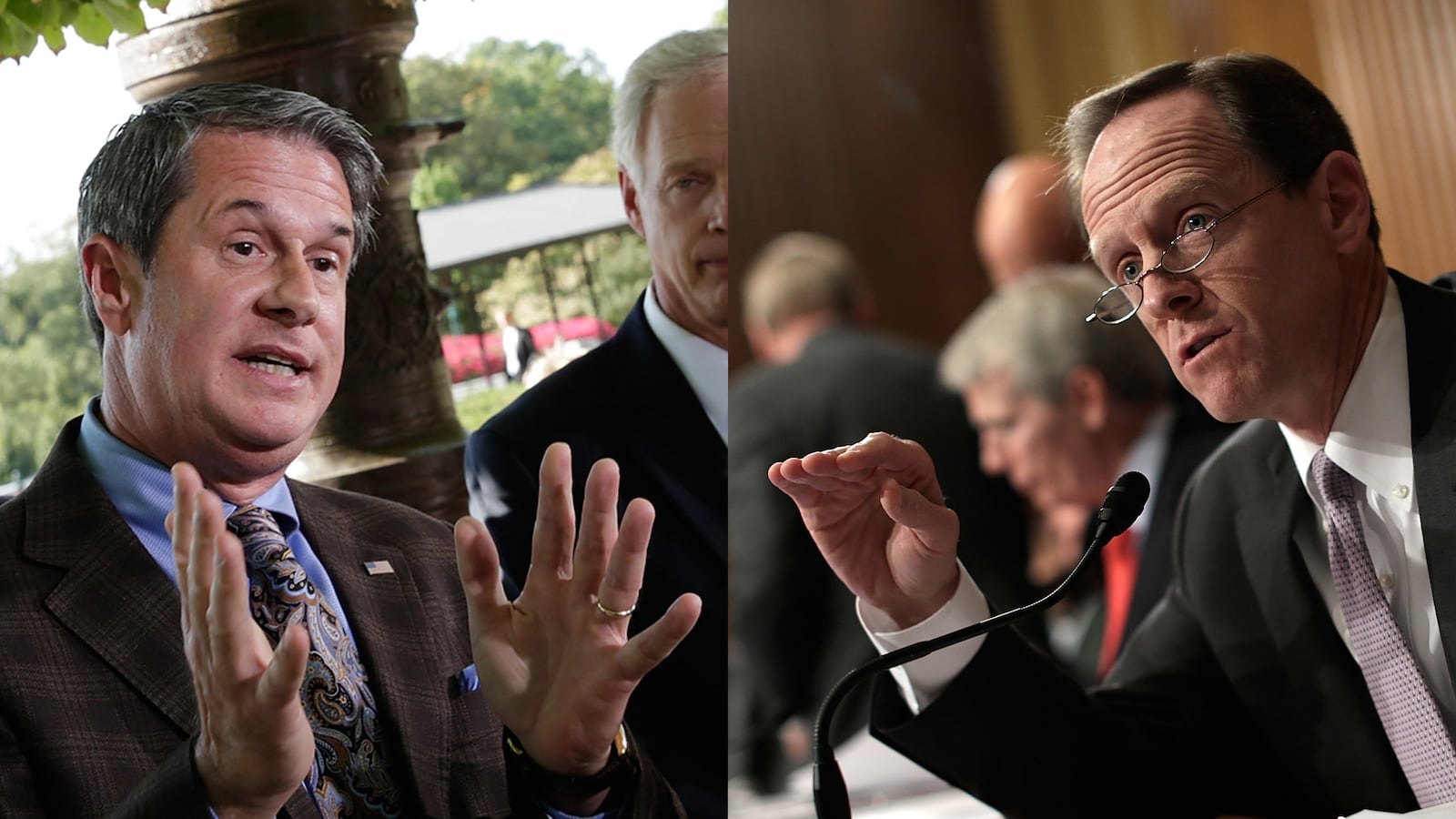No one knows exactly what would happen if the United States breached its debt ceiling—an artificial limit on what the Treasury can borrow to pay its bills—but almost everyone agrees it would be disaster. I say “almost” because a growing chorus of Republicans insist the opposite, that hitting the debt limit wouldn’t cause a default, and even if it did, it’s no big deal for the nation or the world.

Their main argument is that the Treasury can continue to pay interest and fund critical problems through “prioritization” of key payments. “We’re not going to default; there is no default,” said Rep. Mick Mulvaney (R-SC) over the weekend. “We should pass a bill out of the House,” he continued, “saying there will be certain priorities attached to certain things, namely payment of debt services and payment of our military.”
That isn’t a fringe view. At the beginning of the 112th Congress, in January 2011, Sen. Pat Toomey (R-PA) took to The Wall Street Journal to declare his support for legislation that would “require the Treasury to make interest payments on our debt its first priority in the event that the debt ceiling is not raised.” He followed his declaration up with legislation to that effect, which was seconded with similar legislation from Sen. David Vitter (R-LA). In May 2011, 17 GOP senators wrote to then–Treasury secretary Timothy Geithner “asking him to explain his recent claims that America will default on our debt payments” after the the country reached the limit, since—as far as they understood it—the executive could prioritize spending. And this year, House Republicans passed a bill that allows the government to borrow money above the debt ceiling to pay bondholders and Social Security recipients.
Not only does the GOP view rest on a dubious assumption of legal authority—the executive branch doesn’t have the right to pick who it chooses to pay—but it also presumes Treasury could reconfigure its vast payment system in a matter of weeks. That’s an odd supposition by lawmakers who have nothing but contempt for the federal government and its ability to perform complicated functions.
Compared to Republicans like Rep. Ted Yoho of Florida, however, these debt-ceiling “truthers” are outright responsible. Yoho and several of his compatriots in the House are debt-ceiling denialists who believe the administration is crying “wolf” on the issue. Incredibly, Yoho told The Washington Post that hitting the debt ceiling would “bring stability to world markets.” And Sen. Tom Coburn (R-OK) told CBS News that he “would dispel the rumor that’s going around, that you hear on every newscast, that if we don’t raise the debt ceiling, we’ll default on our debt—we won’t.”
It’s tempting to say Republicans can believe what they want. The problem is that their fantasies are driving an unprecedented standoff that could destroy our economy and plunge the world into a financial catastrophe.
Remember, the risk associated with debt has a lot to do with the borrower’s ability to pay. If U.S. government debt is an incredibly safe investment, it’s because the Treasury has never missed a payment on its obligations. Countless entities, from countries to corporations, can trade Treasury bonds secure in the knowledge that the United States is the most credible borrower on the planet.
This is why it’s unwise to compare household or individual debt to national debt. Credit cards and car loans come with high interest rates because, as mortal people with contingent circumstances, we can lose our ability to pay creditors. Governments don’t have this problem. Not only are they (effectively) immortal, but they can draw on their productive capacity to pay debts. For that reason, investors are eager to buy their debt. It’s safe.
Breaching the debt limit destroys all that credibility. Indeed, it’s fair to say America’s “fiscal conservatives” are threatening to turn us into a deadbeat borrower, with terrible consequences for countless people. As Yalman Onaran writes for Bloomberg, “Failure by the world’s largest borrower to pay its debt—unprecedented in modern history—will devastate stock markets from Brazil to Zurich, halt a $5 trillion lending mechanism for investors who rely on Treasuries, blow up borrowing costs for billions of people and companies, ravage the dollar, and throw the U.S. and world economies into a recession that probably would become a depression.”
Like the insane, nuclear bomb-worshipping mutants who live beneath the Planet of the Apes, the debt-limit truthers and denialists are willing to risk disaster in a last-ditch attack on Obamacare. For now, House Speaker John Boehner is in control. But given the volatility of the last week, how long will that last?




